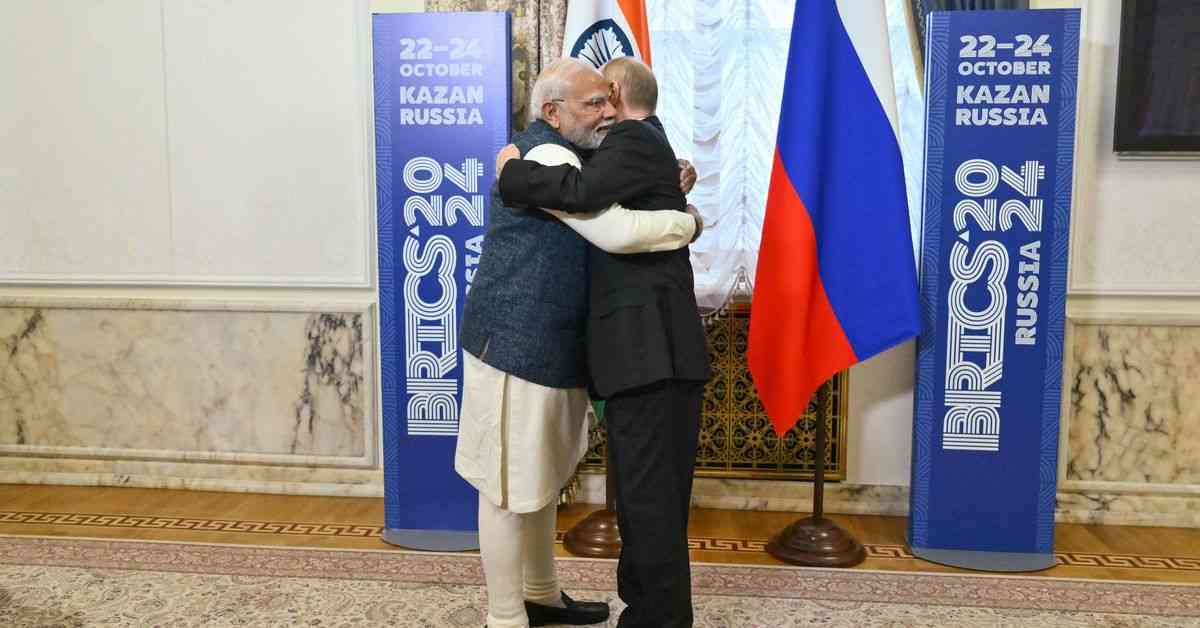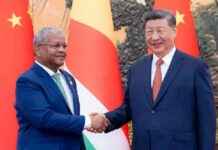India’s Strong Partnership with Russia: A Closer Look
At the BRICS summit in Kazan, India’s Prime Minister Narendra Modi and Russia’s leader Vladimir Putin embraced once again this October. Since the Russian full-scale invasion of Ukraine began in February 2022, India’s close relationship with Moscow has been seen as a barrier to international isolation of the aggressor state. However, Western efforts to reduce India’s dependence on Russia have yielded mixed results. India’s increasing imports of cheap Russian oil highlight New Delhi’s focus on pursuing its own interests. India sees Russia as a trustworthy partner, so German policy on India should not hope that the country will turn away from Russia.
India is becoming an increasingly important partner for Germany and other Western countries in security, foreign, and trade policies. Despite the growing relevance of India, diplomatic engagement with New Delhi is met with some skepticism due to its extensive relations with Russia. India’s abstentions on UN resolutions concerning the war in Ukraine have prompted Western states to pursue a policy aimed at reducing India’s dependence on Russia and ultimately steering New Delhi away from Moscow.
However, India is not considering such a turnaround. The Indian government views contemporary Russia as an important and reliable partner, continuing the tradition of past relations with the Soviet Union. India and the Soviet Union signed a Treaty of Peace, Friendship, and Cooperation in 1971. In early July 2024, Indian Prime Minister Modi received the highest civilian award from the Russian Federation during his visit to Moscow. India’s strategic partnership with Russia is driven by arms and energy interests, as well as concerns about China’s hegemonic ambitions.
Longstanding Arms Cooperation
India considers Moscow a security partner that has supported it during crucial moments in its history. In the 1960s, about 80% of India’s military equipment was of Soviet origin. After the Soviet Union’s collapse, India diversified its military imports, with France, the USA, and Israel becoming important suppliers in the 2010s. Despite efforts to diversify, India’s dependency on Russian arms remains strong, especially in terms of maintenance and support. The US is the only country that could exert diplomatic pressure on India to reduce its military ties with Russia. However, Washington sees India as a crucial counterbalance to China in the Indo-Pacific region, as evidenced by the decision not to sanction India for acquiring Russian S-400 air defense systems.
Economic Win-Win Situation in Energy
In the field of energy, India views Russia as a reliable and affordable source for its growing energy needs. Since 2021, Russia has become India’s primary oil supplier, covering 44% of its needs in July 2024. Russia’s economic redirection and weak bargaining position benefit India, which relies on other countries for its energy security. Russia’s current partnership with India is advantageous for both countries, with India receiving Russian oil at reduced prices and an increase in bilateral trade set to reach $100 billion by 2030.
India’s Fear of Geopolitical Isolation
India sees Russia as an important partner in containing the power of regional rival China, which poses a significant security threat since the 1962 Sino-Indian border war. India fears that China could militarily enforce its territorial claims in regions like Aksai Chin and Arunachal Pradesh. India aims to prevent the emergence of a third regional rival beyond China and Pakistan, particularly to maintain its privileged position with Russia.
Russia as Part of India’s Multi-Alignment Strategy
India aims to deepen partnerships with both Russia and Western countries, driven by strategic interests and the perception of Russia as a reliable partner. Following the invasion of Ukraine, India’s cooperation with Russia has shifted from arms to energy issues. While India’s relations with Russia may take on a more pragmatic tone, it is unlikely that New Delhi will publicly denounce Russian imperialism. India’s commitment to diversify its partnerships should not be misconstrued as a step towards detachment from Russia.
In conclusion, India’s foreign policy is based on interests rather than values, making it unlikely to become a traditional Western ally. Germany and the EU should prioritize their own and common interests in their partnership with India, focusing on security risks in Europe and the Indo-Pacific. Collaboration in climate policy with India has the potential to enhance energy security interests and boost mutual trade. Ongoing strategic dialogues are essential to address conflicts related to Russian revisionism.









![Indie music fans gather at l’Antipode for [Face B] Kool Things soirée on Saturday night news-15112024-105933](https://shanghainewstv.com/wp-content/uploads/2024/11/news-15112024-105933-218x150.jpg)







